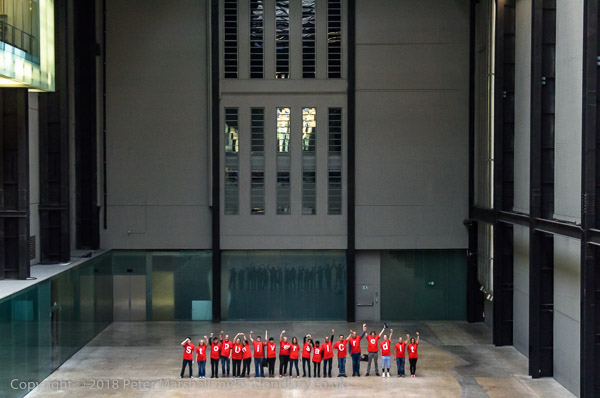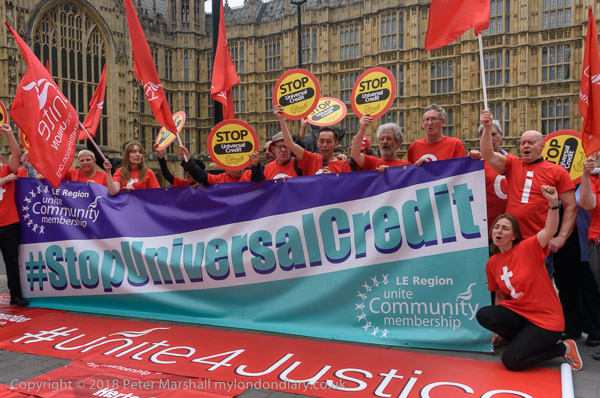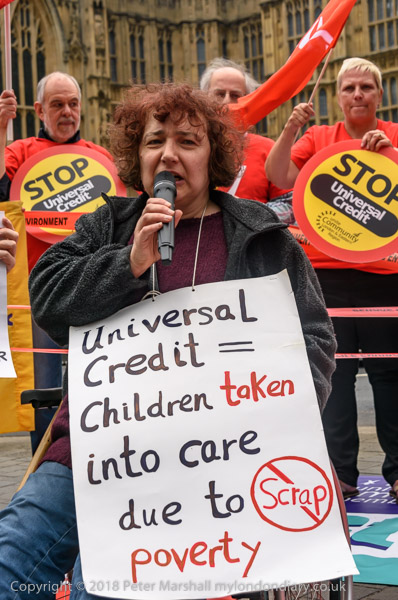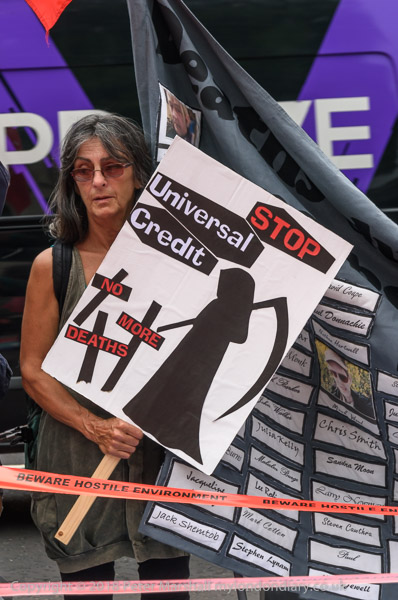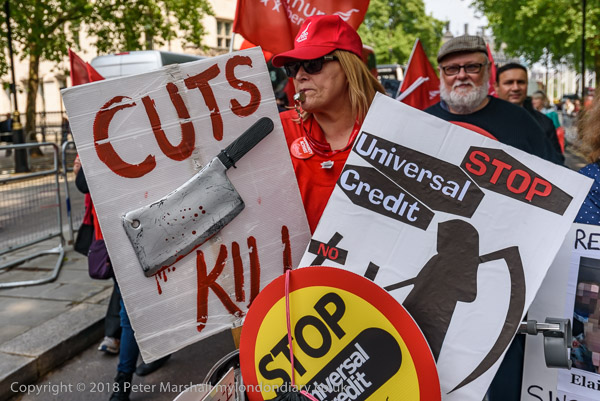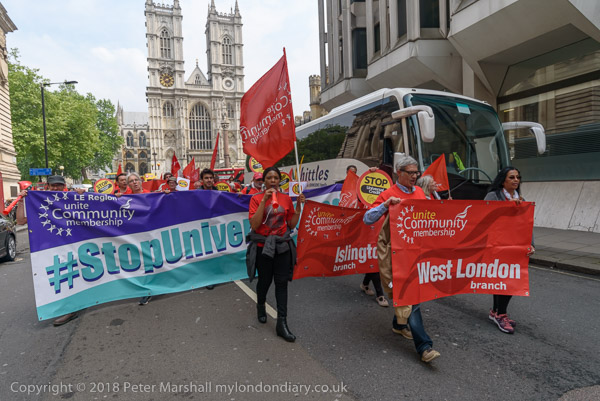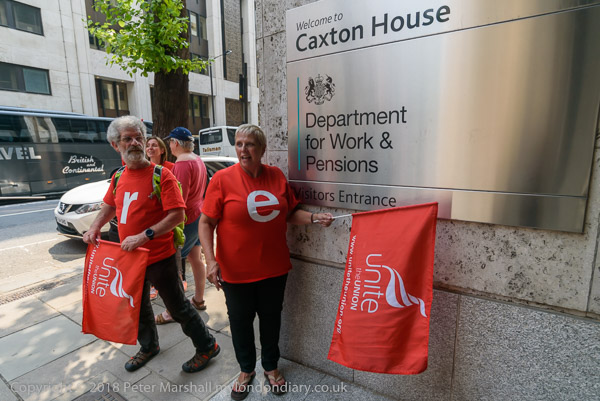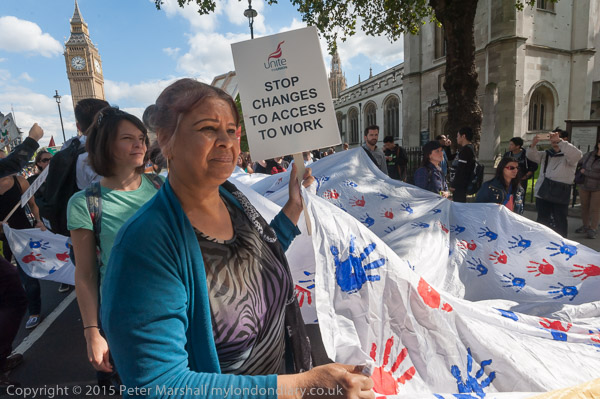
Saturday 26th September 2015 wasn’t one of my busiest Saturdays, but the two events I photographed were very different, and took place some distance apart. The first was in the centre of London, at Westminster and was a protest over the discrimination by the Tory government against disabled people.
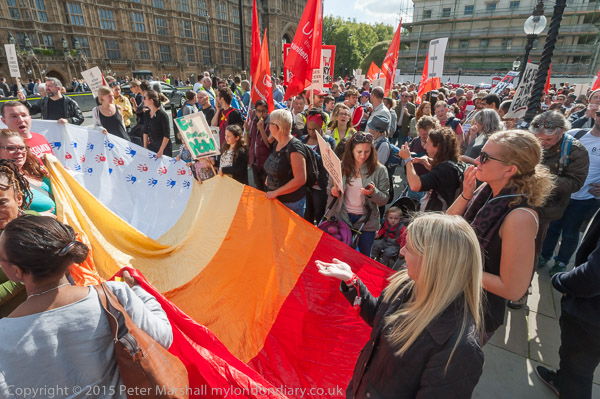
It was clear from the start of the coalition government that came to power in 2010 that the Tories were out to target the disabled, and that they saw them and the benefits they were getting as a drain on our taxes they were keen to diminish. They declared that cuts in government spending were essential, blaming the previous New Labour government for the results of the world-wide banking crash which in reality was caused by the exploitation of an unstable system by greedy bankers and using this as an excuse for largely counter-productive austerity.
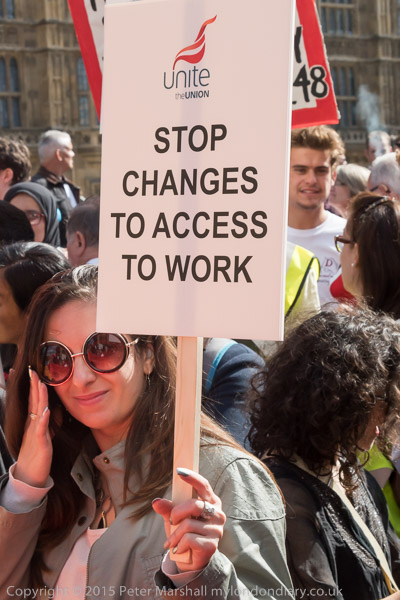
Looking at ways to make cuts, they picked on the disabled as they thought they would be an easy target and could bring large savings. But the disabled have turned out far more resilient than they expected, with groups like Disabled People Against Cuts turning out to be formidable opponents and getting considerable public support.
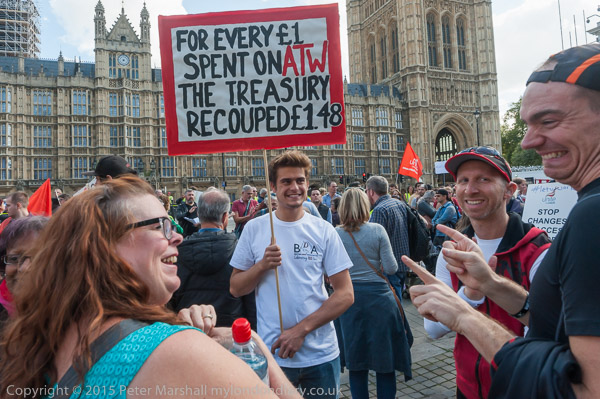
This particular protest was over the the cutting of the DWP’s Access to Work scheme which enables disabled people to work on an equal basis to non-disabled people. They want to work and have careers and to make a contribution to society, but cutting this essential support will prevent them doing so. And as the protesters pointed out, every £1 spent on Access to Work results in a return of £1.48.

A long tube journey, changing to go almost to the edge of London on the Piccadilly line and then catch a bus to Sipson took me to Grow Heathrow in Sipson. It was a reminder that although London once led the world with its Underground system, it has failed to keep up with the times and now so many other cities have more modern and faster systems. When I first went to Paris we used to laugh at the quaint Metro clattering slowly and noisily around under the city, but now Parisians used to the RER must enjoy at least a little smile at our creaking system – and perhaps gloat that some of their system is now financed by the profits from Londoners using RATP run buses. Germans too profit as DB Arriva run the Overground as well as buses as well as three rail franchises.

Grow Heathrow was celebrating another harvest at their occupied nursery site with ‘music, pumpkins and pizza’ as well as an open ‘No Third Runway!’ discussion. They had squatted the derelict site in 2010 and five years later were still resisiting eviction with their court case then adjourned until the following summer. Half the site was evicted in 2019 but the rest continued until the final eviction in March 2021.

I was late (thanks to that slow journey) for the start of the discussion on Heathrow, but got there in time to hear much of it and take pictures – and as a fairly local long-term resident to make a very small contribution to the debate led by John Stewart of HACAN and other campaigners including Christine Taylor of Stop Heathrow Expansion and Sheila Menon of Plane Stupid. I grew up under the flightpath a couple of miles from touchdown and have lived the last 47 years a similar distance from the airport. Established by deception it has long been clear the airport is in the wrong place, and now even clearer that we can’t continue expanding air transport if we want to avoid climate catastrophe.
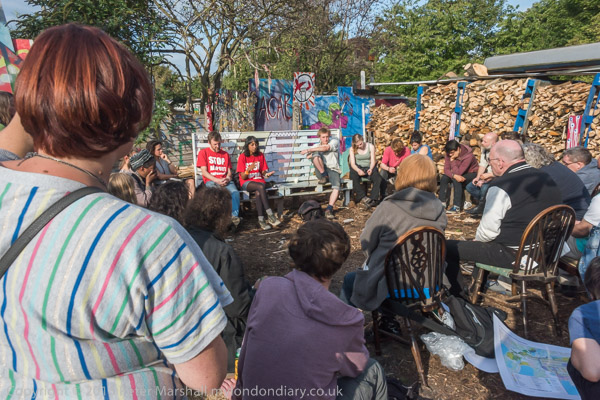
It is hard to take the government’s environmental policies seriously when they continue to support the expansion of air travel and transport and plans for another runway at Heathrow. We should be looking urgently at ways to cut our dependence on air freight and reduce travel, as well as ways to reduce the carbon emissions involved in the lower amount that will continue. This is one of the government policies that seriously undermines its national and international credibility at the forthcoming COP26 climate talks.

Grow Heathrow showed how people could live in different ways and evolve stronger communities and more democratic systems, although few would want to live as ‘off-grid’ in the rather spartan conditions of the residents here. But although we might not all want to make our own charcoal, nor go back to running vehicles on it, producing biochar is one of the few practical methods currently feasible of carbon capture and storage.
Grow Heathrow celebrates Harvest Festival
Deaf & Disabled Access to Work protest
All photographs on this and my other sites, unless otherwise stated, are taken by and copyright of Peter Marshall, and are available for reproduction or can be bought as prints.
